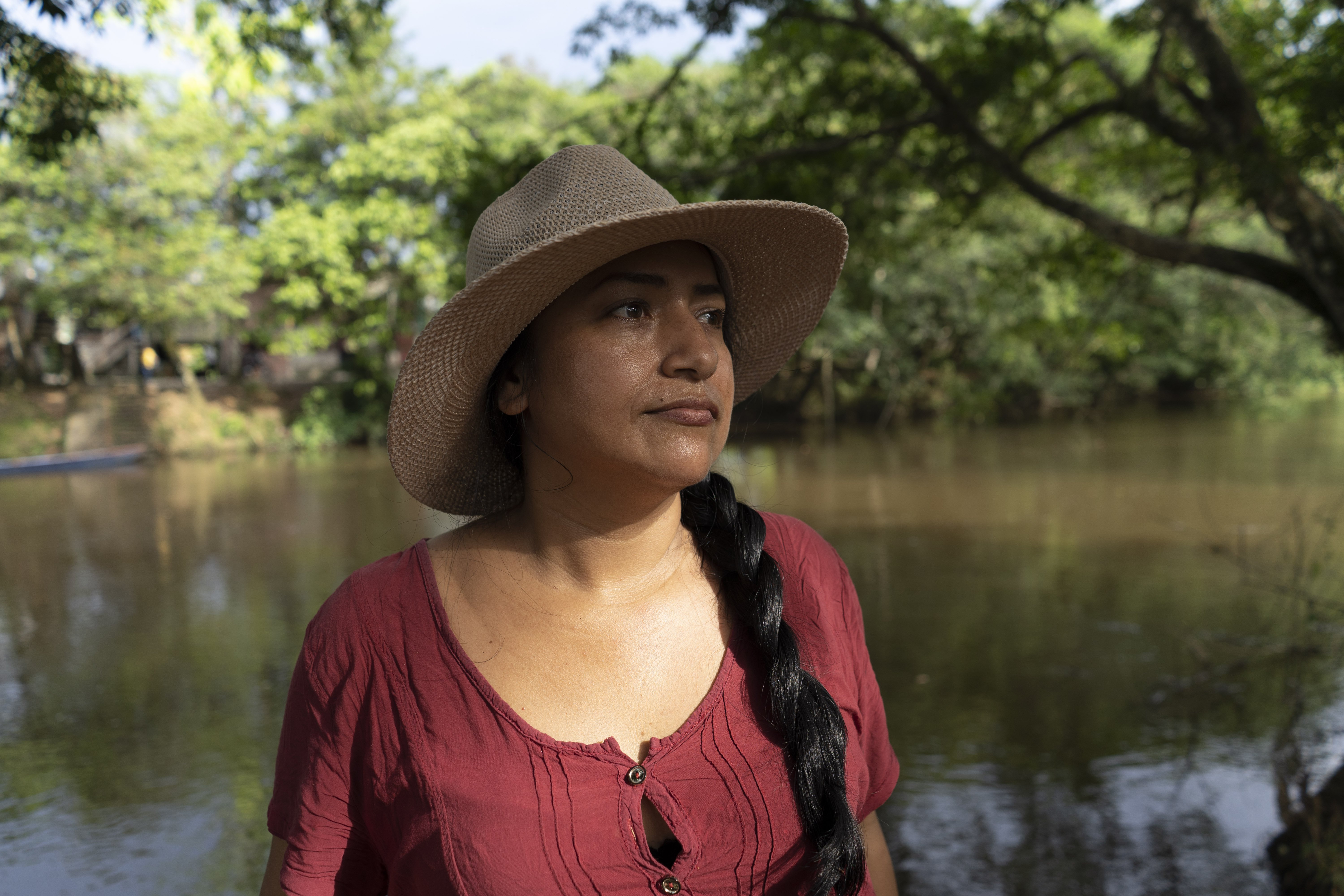Meet some of the women Oxfam works with who are leading the charge for equal rights and representation around the globe.
On International Women's Day and throughout Women's History Month, Oxfam is championing the women who have led us, inspired us, and worked hard for us. We are lifting up the sisterhood that supports and recognizes women as changemakers in their communities. Here are a few examples of the amazing female leaders we work with.
Cassandra Welchlin, co-convener and state lead, Mississippi Black Women’s Roundtable

Cassandra Welchlin is at the forefront of a movement for just and equitable public policy on behalf of Black women and girls. As of March 2021, Mississippi was the only state without equal pay legislation. The Mississippi Black Women’s Roundtable is tackling this issue through the Mississippi Women's Economic Security Initiative—a partnership that includes Oxfam—to build relationships at the city level that enhance protections for women.
Welchlin is steering the Black Women’s Roundtable to engage with mayors and introduce pay equity legislation through ordinances. The city of Jackson became the first city in the state to commit to equal pay for women and men, and Clarksdale has signed on as well. It’s all part of a larger advocacy strategy to show gains when the issue comes up at the state level.
“Now that we have the city of Jackson involved, we can show impact from the stories of women who experienced the leveling of the playing field through these city policies and practices,” explains Welchlin.
Tania Hernandez Téllez, leader of the Rural Women's Association of Peacebuilders, Colombia

In the Putumayo region of Colombia, local politics are a matter of life and death. After a female elected official in San Miguel was shot in the head, there hadn’t been another woman elected to the city council for over 16 years. Then, in 2019, a collective of women from different political factions ran for office, fed up with the violence, misogyny, and inequality that ravaged their homeland.
Tania Hernandez Téllez is one of those women. Téllez, 41, is the local leader of the Rural Women’s Association of Peacebuilders, part of a national platform for women that works closely with Oxfam. In this space, local organizations and leaders exchange experiences and build alliances to stand stronger in their common fight for equality.
While she did not end up being elected, she considers the women’ collective action a victory.
“Sometimes I hear people say that women need to get to the same level as men,” she says. “But no, I really do not want that. Their level is bad! I want a peaceful and just life. I want our lives to be respected.”
Magaly Urdiales, organizer and co-director, Western North Carolina Workers Center

When the pandemic struck, Magaly Urdiales sprang into action to support Latinx immigrant communities through the Western North Carolina Workers Center, helping to raise hundreds of thousands of dollars. The Center builds power among workers of color through organizing, education, and direct action to promote worker justice.
Urdiales is creating online opportunities for workers to listen, learn, and collectively strategize about managing the COVID-19 crisis in their communities and workplaces. She is also focused on helping women who are experiencing domestic violence find safe refuge and counseling and plan their next steps.
“What inspires me to do this work,” she says, “is the leadership and courage of the women immigrants we work with.”
Bo Sophea, community fishery youth group leader, Sandan, Cambodia

Bo Sophea leads a community fishery youth group in the riverside village of Sandan in northeastern Cambodia, where hydropower dams upstream and widespread illegal fishing are affecting the fish catch.
“I want to mobilize other youth to raise awareness about illegal fishing,” she says. “We spread information and encourage people to report any illegal fishing on the river.”
People in this area, known as Sambo District, learned about a proposed hydropower dam that would stretch across the Mekong River to Rogniev Island, forcing villages like Sandan to relocate and potentially altering the river’s flow. The dam could also affect the fish population, including rare Irrawaddy dolphins.
Sophea say training with Oxfam partner Northeast Rural on gender, youth leadership, and other skills is helping her lead. “I recently conducted a training on community rights to free prior and informed consent,” she says, adding that she hopes this knowledge will help her community assert its right to information about the dam.
Morena del Carmen De León Martínez, local leader, El Salvador

In 2008, Morena del Carmen De León Martínez took a stand for her community outside San Salvador, where there was no natural running water, and accessing the water supply was expensive. For women caring for their families, she says, the lack of water for drinking, cooking, and cleaning was an emergency. De León Martínez braved everything from stage fright to death threats to make her case to the local municipalities, and in the end, she won. Now her community receives affordable weekly water deliveries.
De León Martínez’s efforts drew the attention of two organizations Oxfam has partnered with over the years to strengthen the country’s capacity to manage disasters—the Fundación Maquilishuatl (FUMA) and the Mesa Permanente para la Gestión de Riesgos en El Salvador. They connected De León Martínez with trainings and courses to build her knowledge, and now she’s working with the mayor’s office and local organizations to get food to families affected by the pandemic.
Magdalena Cortéz, the director of FUMA, is one of De León Martínez’s biggest fans. “She is a woman who will stand up in front of the authorities and say, ‘you’re getting it wrong, and here’s what you need to do.’”
